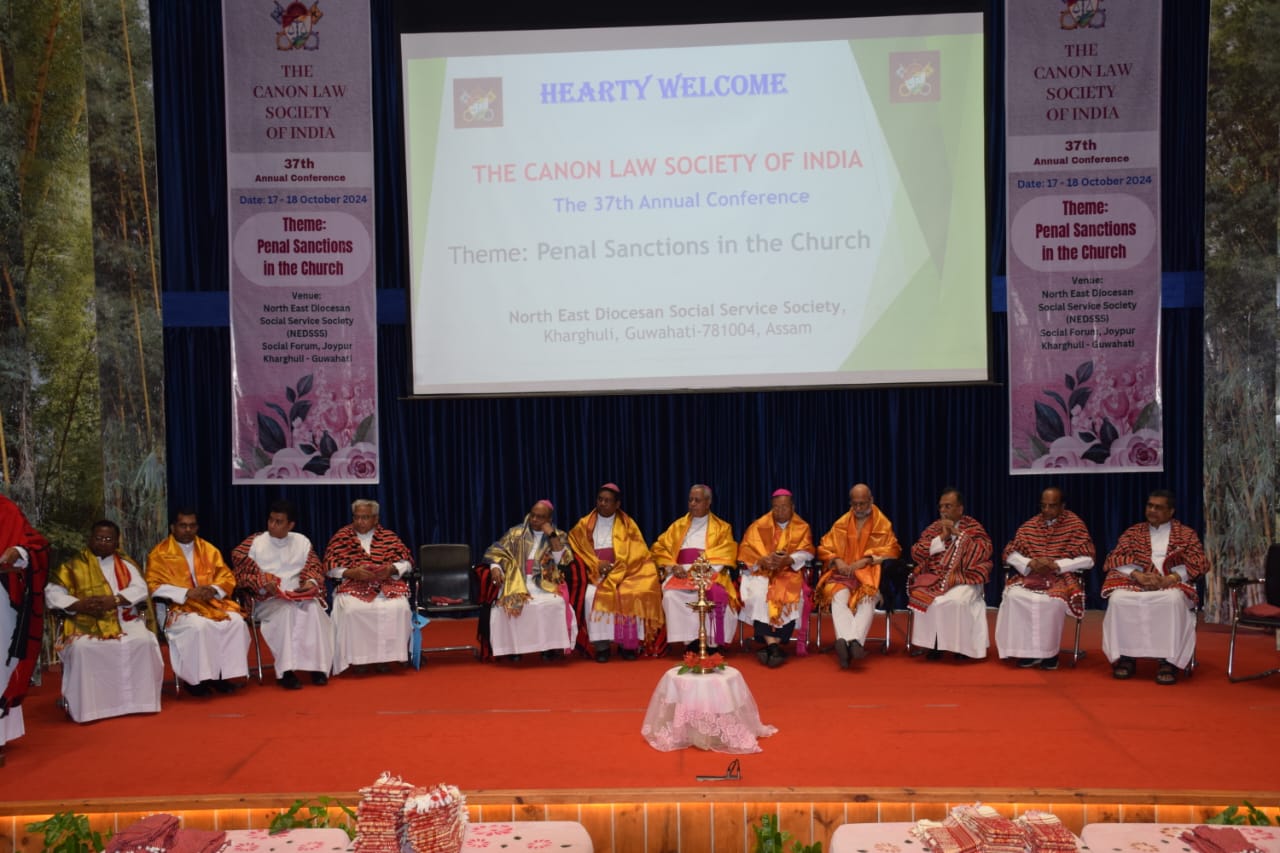The Canon Law Society of India (CLSI) kicked off its 37th Annual Conference at the North East Diocesan Social Service Society in Guwahati, marking the first time the event is being held in the Northeast.
The four-day conference, which runs until October 18, has drawn over 130 canon lawyers, priests, and religious sisters from across India, focusing on the theme “Penal Sanctions in the Church.”
CLSI President Rev. Dr. T. Lourdusamy highlighted the significance of this being the first time the annual gathering has reached the Northeast since the CLSI’s founding in 1987.
The event opened with a prayer led by Father Selvaraj of the Bongaigaon Diocese, invoking divine guidance for a deeper understanding of God’s justice.
Most Rev. Dr. Albert Hemrom, chairman of the Canon Law Commission of the Northeast Bishops’ Council, welcomed participants, presenting traditional tokens of hospitality, including Garo bags and Assamese gamosas.
A video message from Cardinal Oswald Gracias, CLSI’s founder, was screened during the opening session.
Cardinal Gracias, currently in Rome attending the Bishops Synod on Synodality, urged attendees to stay updated on changes to Church penal law and emphasized compassion in its application.
He encouraged reflection on how synodality and participatory structures within the Church could be improved.
In his keynote address, Archbishop John Moolachira of Guwahati reflected on the role of penal sanctions in the Church. He stressed that penalties should be preceded by pastoral exhortations and corrective actions aimed at the individual’s spiritual well-being.
He further discussed Pope Francis’ recent amendments to Book VI of the Code of Canon Law, which focus on restoring justice, amending the offender, and addressing scandals.
“Canonists must understand the nuances of canon law to assist dioceses in these matters,” Archbishop Moolachira said.
The conference’s first session featured Archbishop Linus Nelli of Imphal, who reiterated the Church’s evolving approach to penal sanctions.
He pointed to a significant reduction in penalties since the revision of Church law in 1917, emphasizing the need for the Church to balance justice with pastoral care.
“The new penal norms are aimed at reparative and salvific ends,” said Archbishop Nelli said explaining the pastoral dimensions of the penal system.
He cited Prime Minister Narendra Modi’s vision to “eradicate the mentality and symbols of slavery” to create a “new confident India,” which prioritizes justice and fairness over punishment alone.







